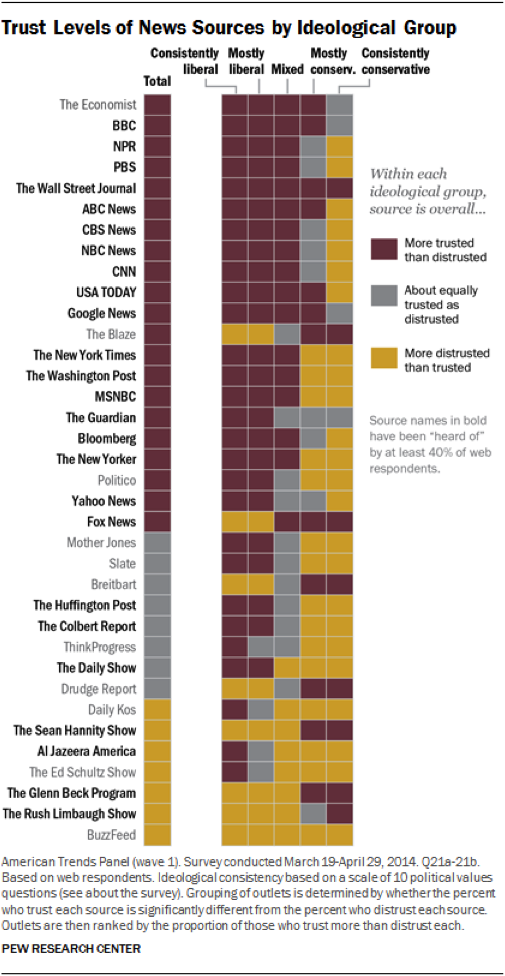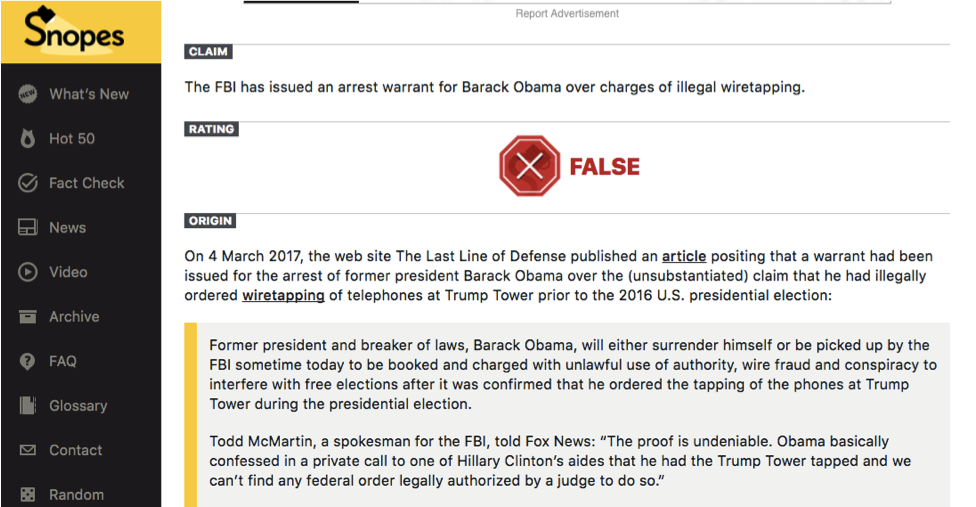what conclusion can we draw to fake new and fake art
"Fake news" has go a topic of household conversation. Information technology is more of import than always to have a firm understanding of what authentic and reputable journalism is, and what is really fake news.
Information technology is more important than ever that individuals exist proactive in differentiating fake news from real news, particularly in the social media world. Consider some of the points below to get your instruction started.
What Really is Fake News?
According to GCF Learn Free, "…Imitation news is any article or video containing untrue information disguised as a credible news source. Fake news typically comes from sites that specialize in bogus or sensationalized stories. It tends to utilize provocative headlines, like Celebrity endorses not brushing teeth or Politician selling toxic waste product on the blackness marketplace."
However, every bit GCF points out, these stories are becoming increasingly dangerous in the digital historic period, with many people consuming stories on social media without fact checking or bothering to ostend that such headlines that aim for a "shock" factor even be. In one case these stories are shared and become popularized, plenty people believe the story and have the story every bit truthful. Oftentimes, this can even become subconscious. This bicycle is vicious in the social media world, as stories that get in to the superlative of news feed are all-too-often untruthful clickbait.
Jokes and Satire Are Not Fake News
It is likewise incredibly important to mention that satire sites like The Onion and Clickhole, which characteristic funny stories based on relevant current events, are non "faux news." They are smart satire pieces intended to be humorous — not real — and their entire sites are based around their readers being knowledgeable almost this strategy and theme. With branding similar Clickhole's ain "Because Everything Deserves to Go Viral" or The Onion's "America'southward Finest News Source," their manufactures' joking nature is intended to be mutual cognition.
A Word on Mainstream News
For the nearly part, trust in major news sources actually lies in the middle of the beholder. See the epitome below highlighting the about trusted major news sources in America (almost of which are really British), as found by Pew Research Center and cited by Business Insider. While there are discrepancies based on ideological views, most major news sources do have to undergo editorial reviews and are recognized as being prestigious forms of journalism. The BBC, PBS, NPR, the Wall Street Journal, ABC, NBC, CNN, United states of america Today, and Google News were among the most trusted across ideological groups (with the exception of consistently conservative folks — who favor BBC, Google News, and the Wall Street Journal).

How to Differentiate Between False News and Real News
There are definitely some things you tin can do if you are not certain a story is real or fake. Here are some tips to help you lot differentiate between faux news and real news stories:
What is the Site?
Every bit discussed above, while people autumn all over the board ideologically in deciding whether they trust a mainstream news source, the truth is that nearly major recognized sources for news journalism are not going to be producing clickbait fake news. About of the imitation news that go for "daze" value and produce fake stories are non as recognized. Look into the source itself and encounter whether information technology is a website that can be trusted.
Bank check the Domain
NPR recently reported that many fake news stories apply similar URLs and domain names to mimic reputable news sources, but rather than using a .com they utilise .com.co endings. "This is true fifty-fifty when the site looks professional and has semi-recognizable logos. For example, abcnews.com is a legitimate news source, but abcnews.com.co is non, despite its similar appearance."
What are the Authors' Sources?
Good news stories incorporate links to other reputable reporting by respected organizations. They contain interviews with individuals who can confirm or deny they made the claim. They are supported past evidence, dates, and other data that can be fact checked. Exist wary of sources that cannot substantiate their claims.
Fact Bank check!
When in doubt, fact-bank check the information that yous read! You can commencement with a elementary search to look into the keywords or the outcome that is being reported on. Yous tin can also use sites similar PolitiFact, FactCheck, and Snopes — all of which are extremely reputable fact checking sites for a multifariousness of issues and topics (non just politics).



Examine the Website Closely
It is important to not look at i story alone but to look at the total spectrum of details on the site. Are there other fake-looking or shocking headlines? What does the overall website look like? How is the user feel? Sometimes doing simply a niggling farther earthworks will arrive axiomatic if a news story is fake.
How Informed Users Tin Interact
Once you identify if a story is real or imitation, you lot can make a large deviation. Practice not share stories on social media that are fake and brand them more visible. If you notice a friend or family fellow member share a fake story on a social media outlet, do them a favor and comment or bulletin them showing how you establish out information technology was fake so they don't repeat the aforementioned error.
If y'all come across a fake news commodity, comment on it stating how you lot arrived at the decision it was fake. If everyone does their part to distinguish imitation news stories and make them known, then they won't be shared as easily.
How do y'all differentiate between faux news and actual news stories? Exercise y'all see this as an increasing problem on social media? Allow us know your thoughts and what strategies you use for identification on social media.
Image Credits
Characteristic Image Credit: mars58/DepositPhotos
All screenshots taken past author March 2017.
Source: https://www.searchenginejournal.com/how-to-differentiate-fake-news-from-real-news-in-the-social-media-world/191651/
0 Response to "what conclusion can we draw to fake new and fake art"
Post a Comment